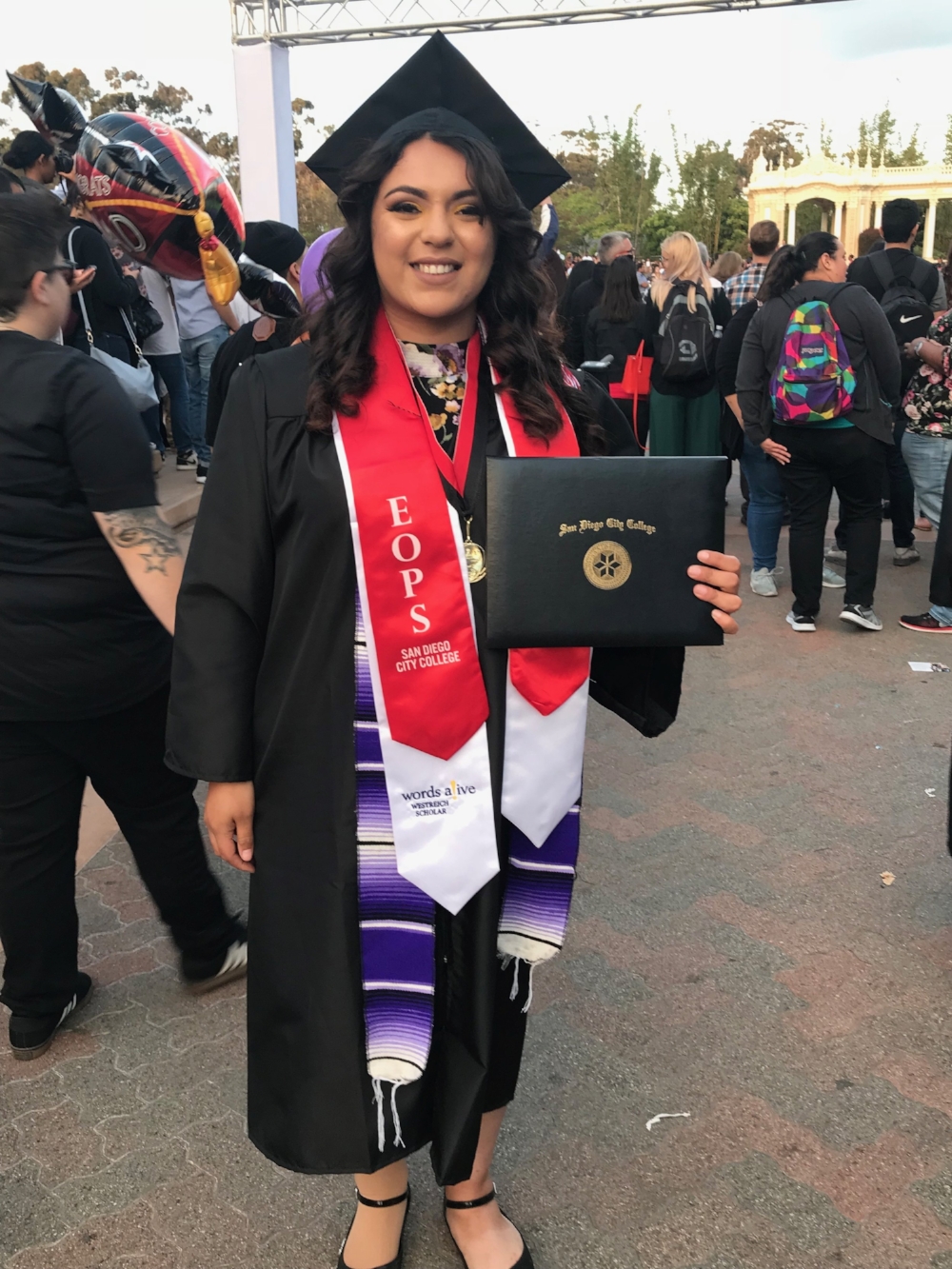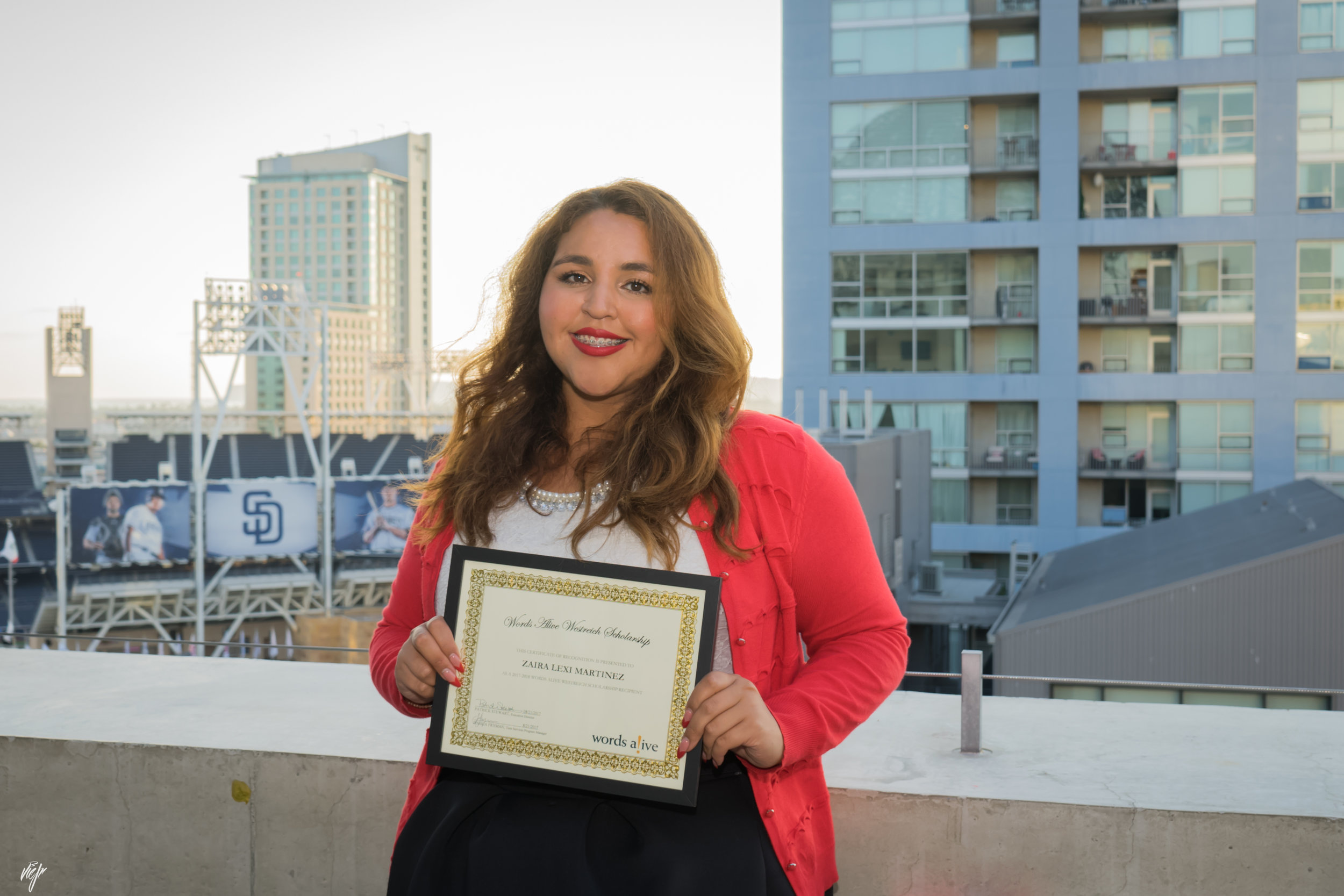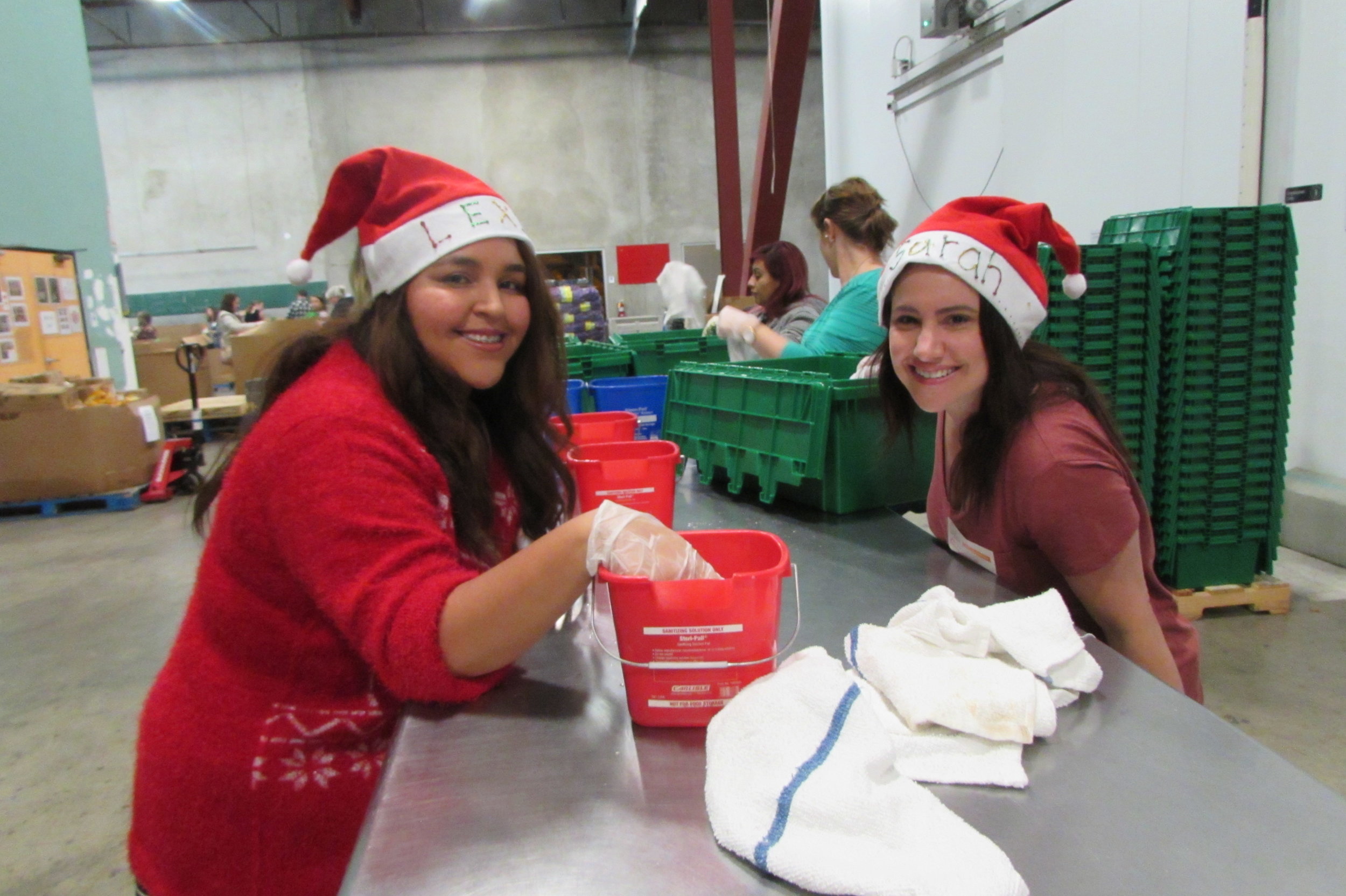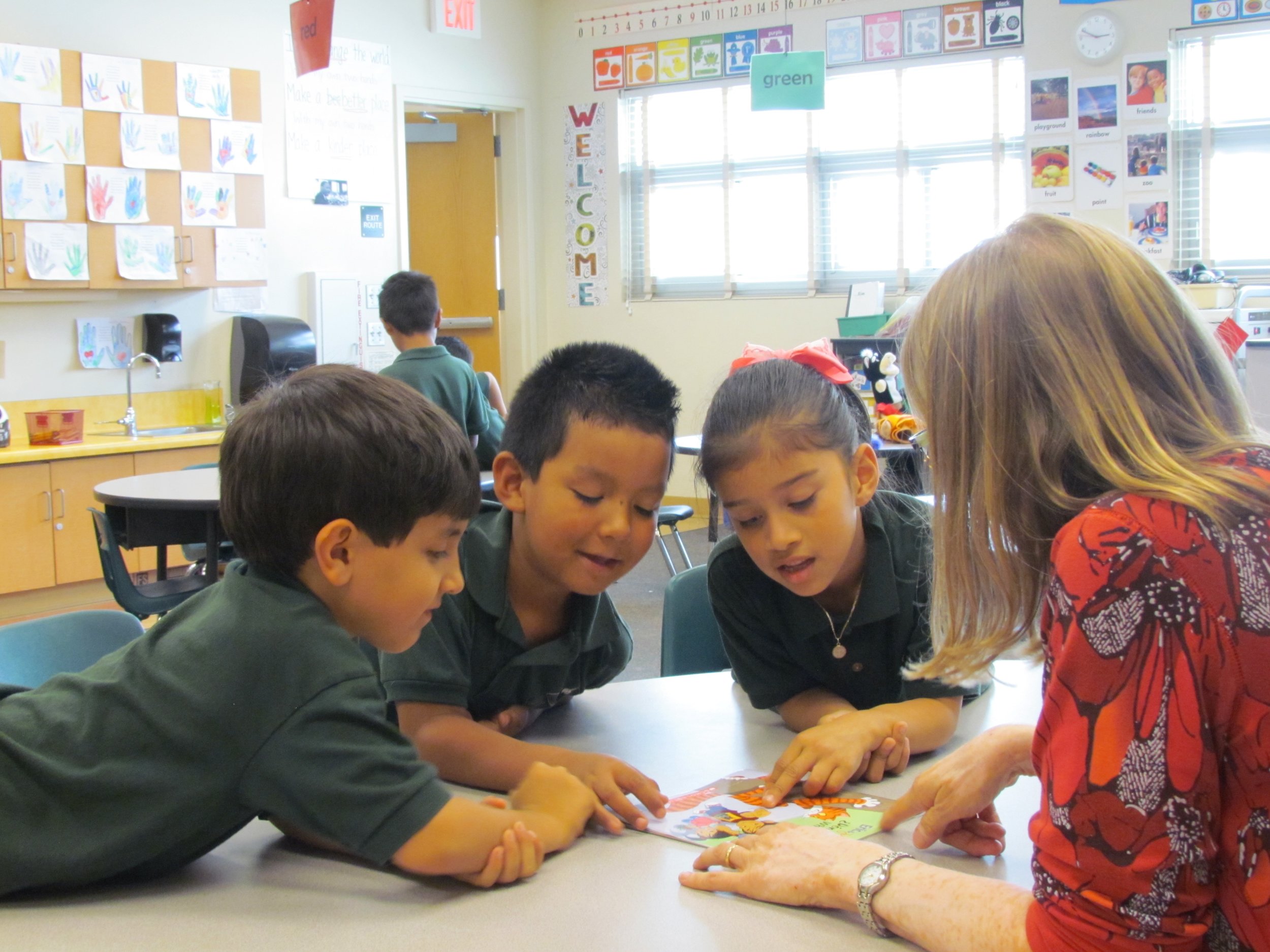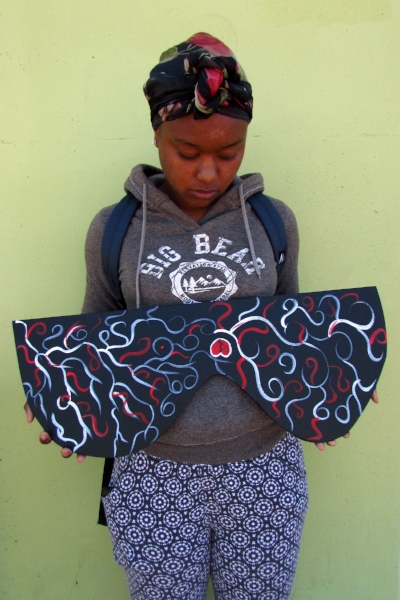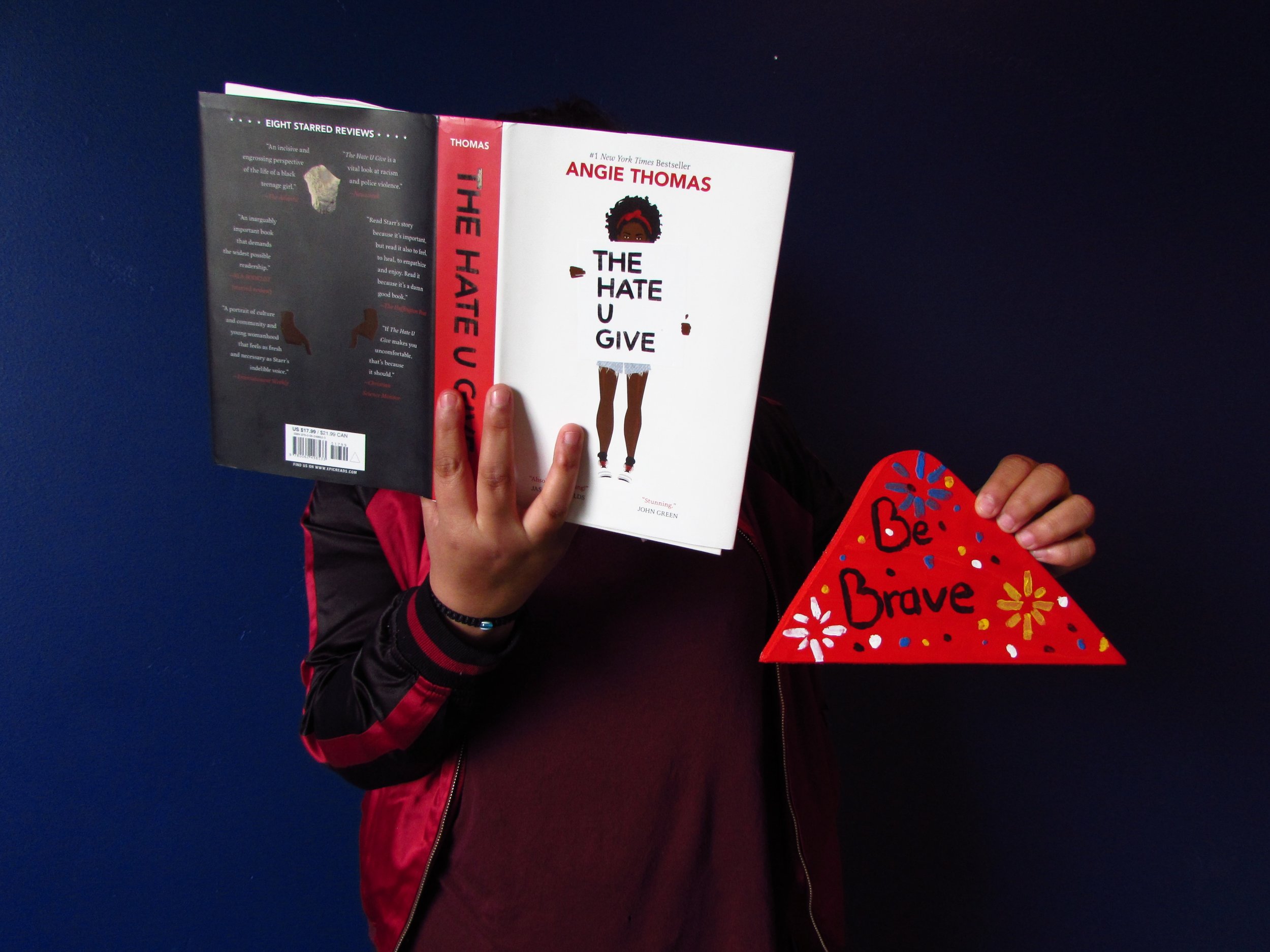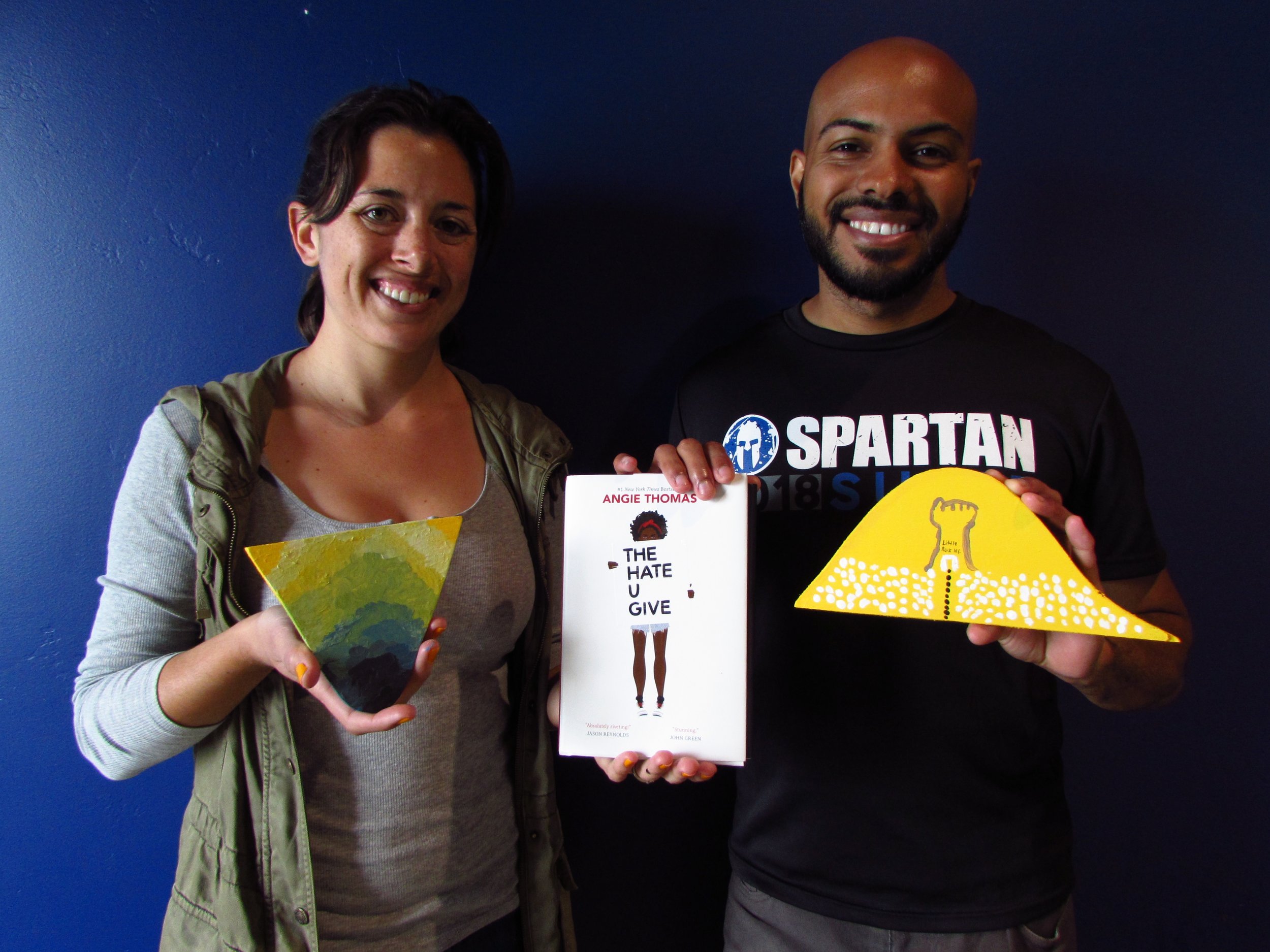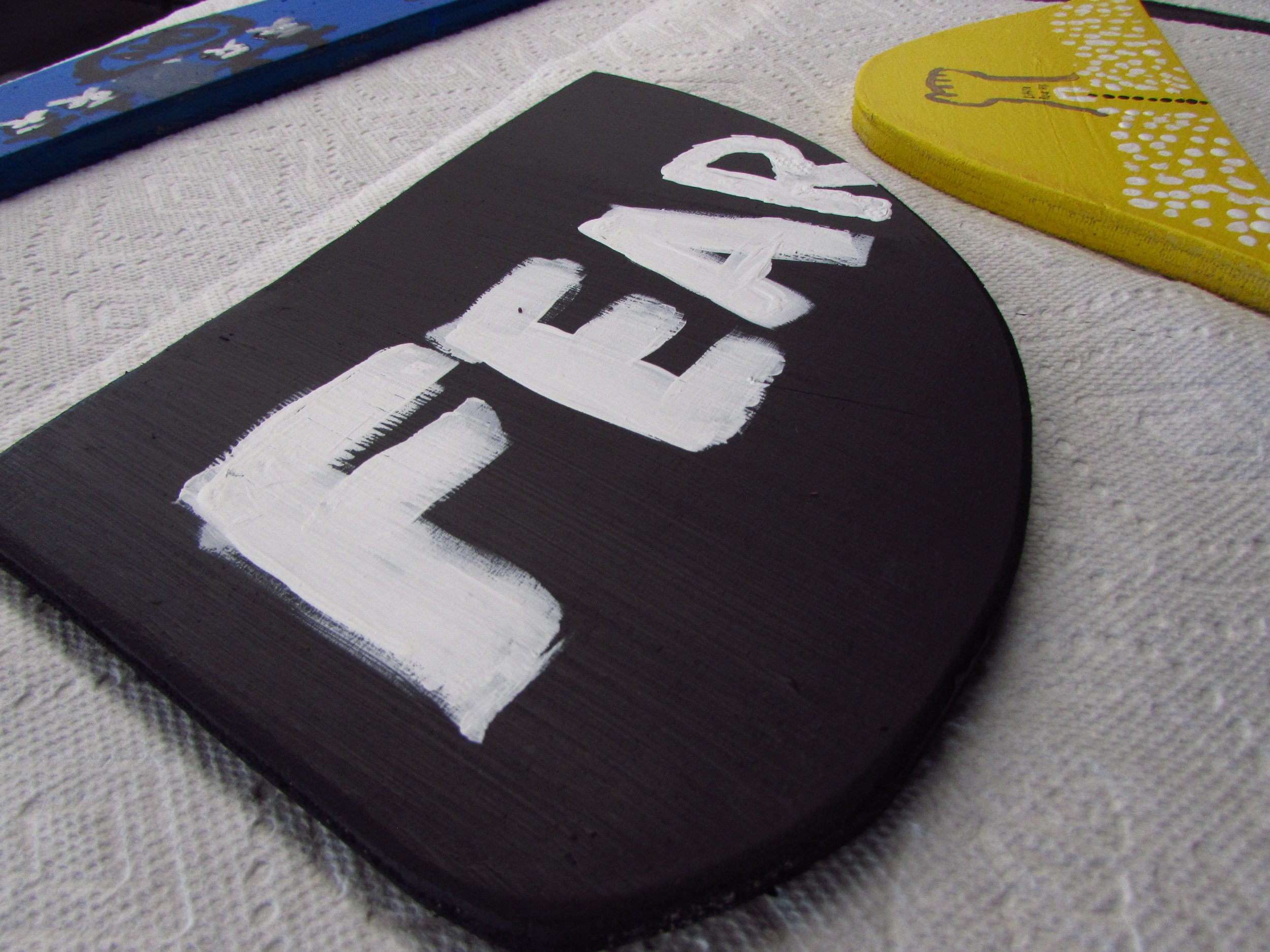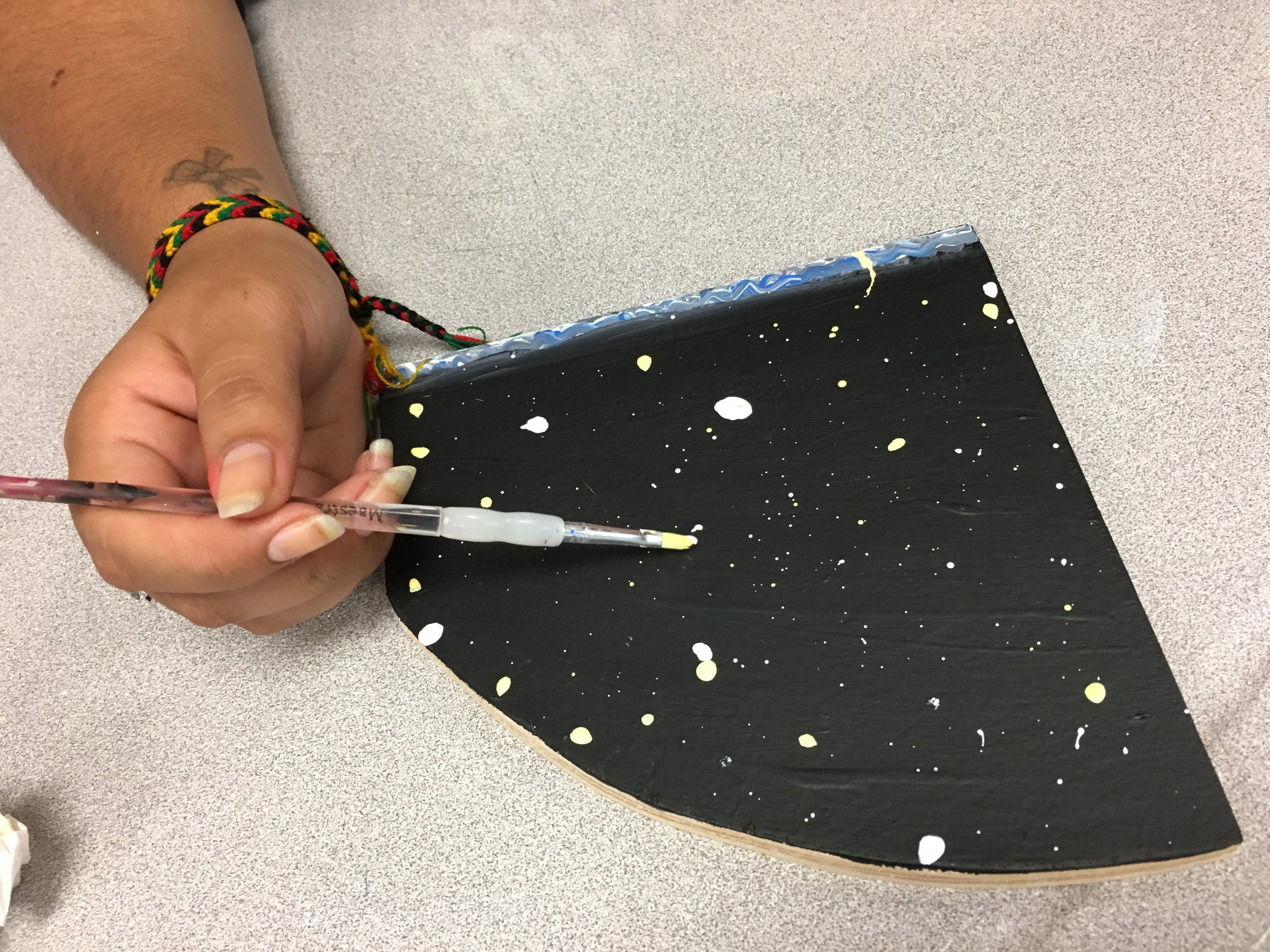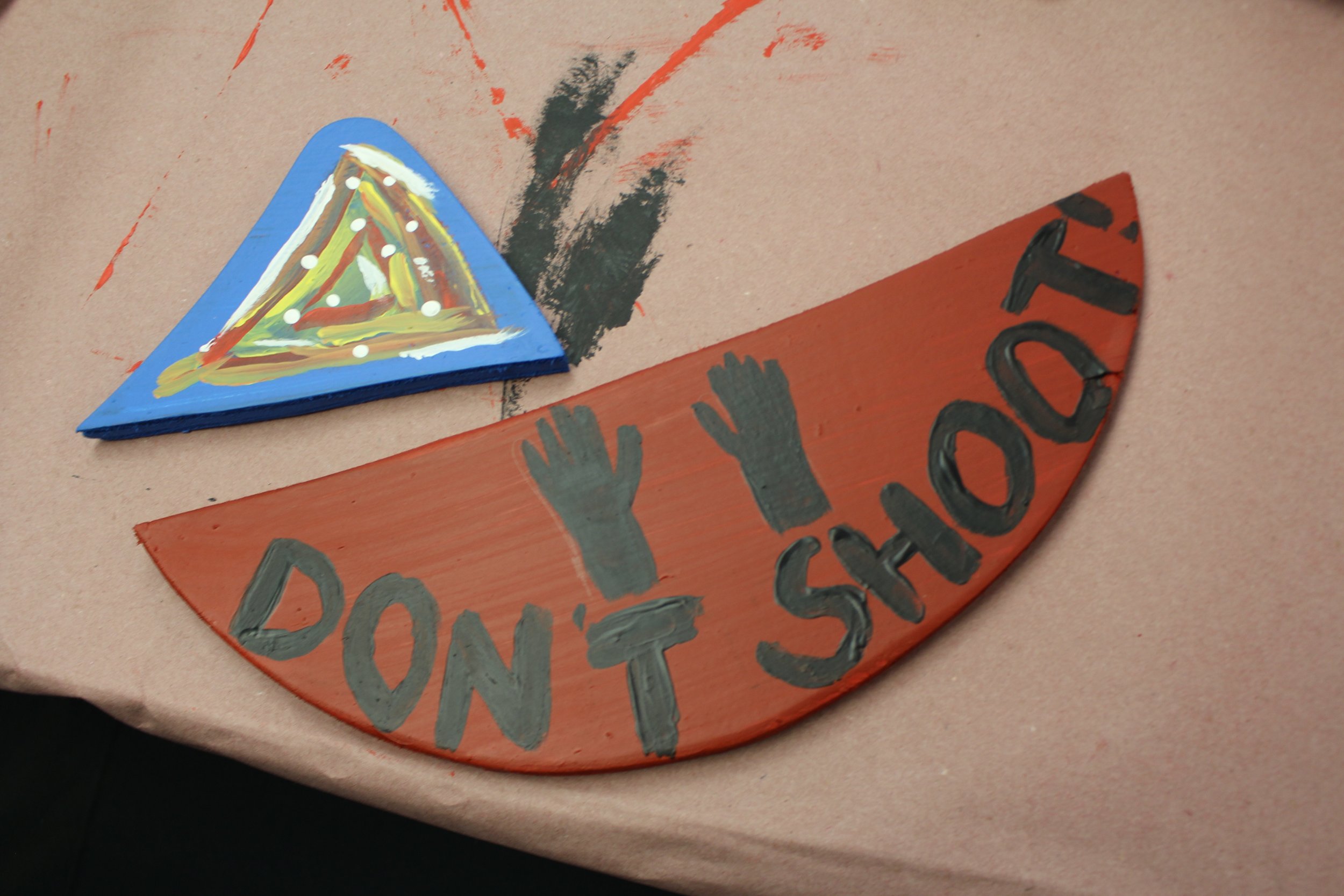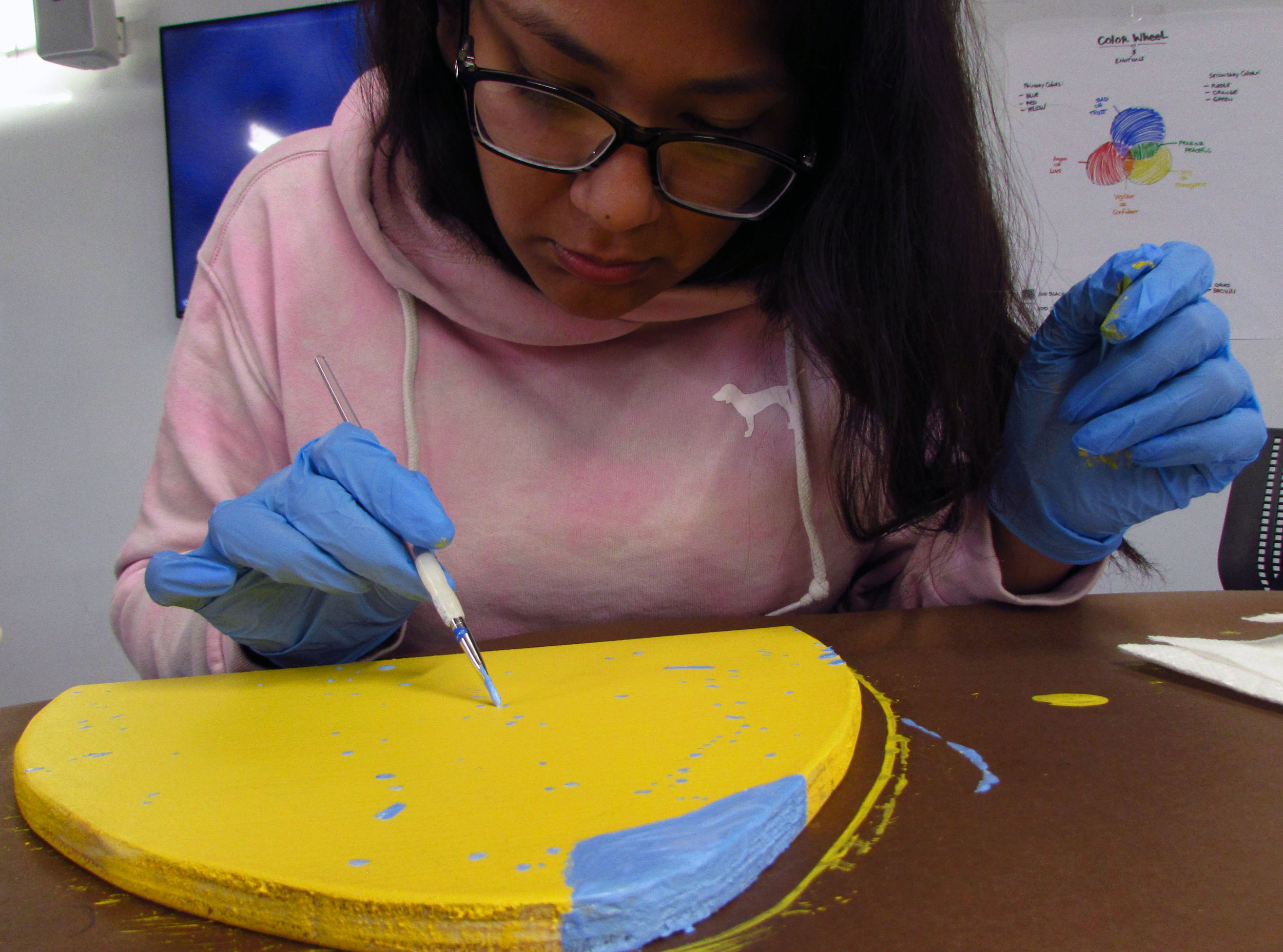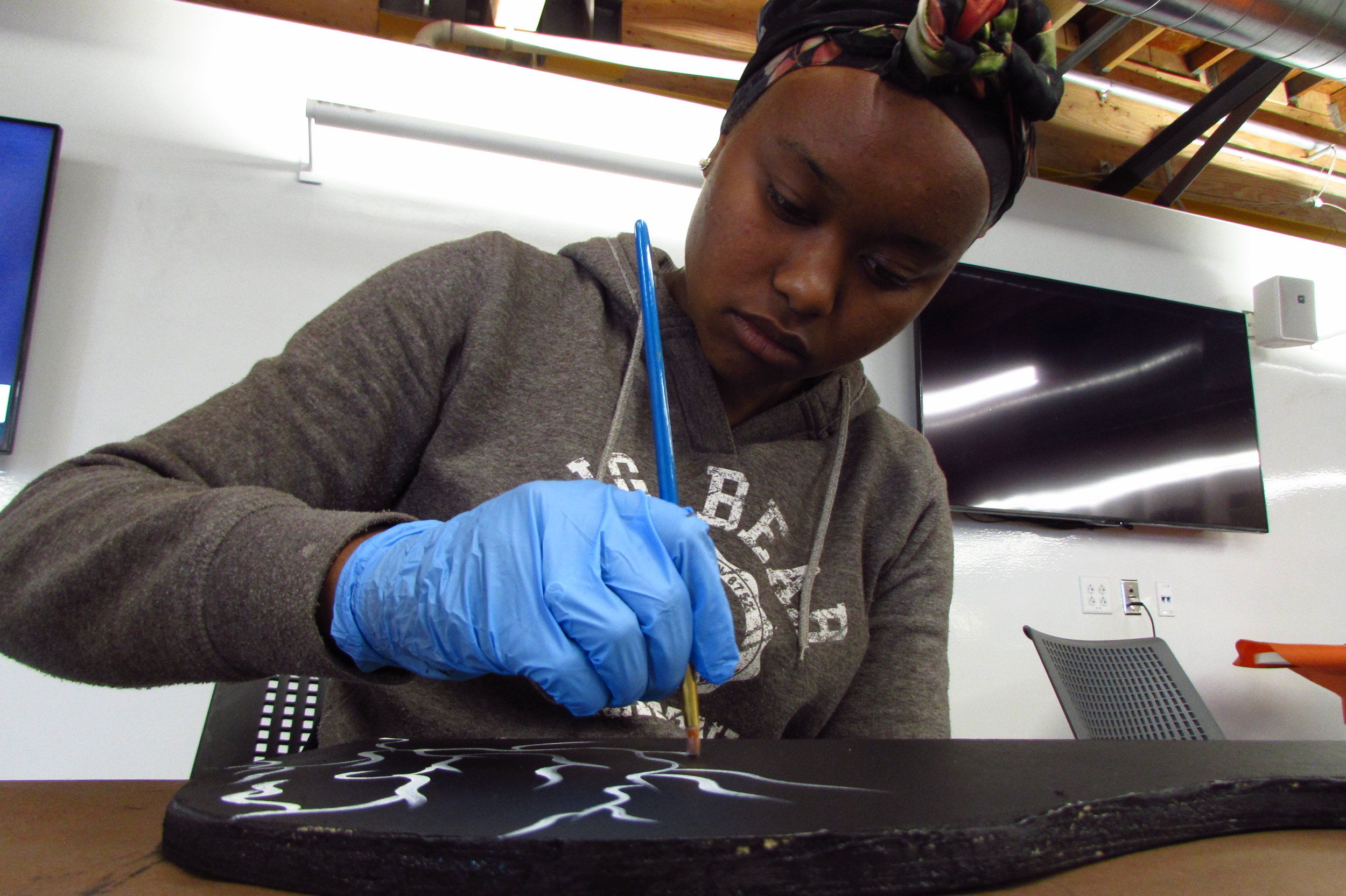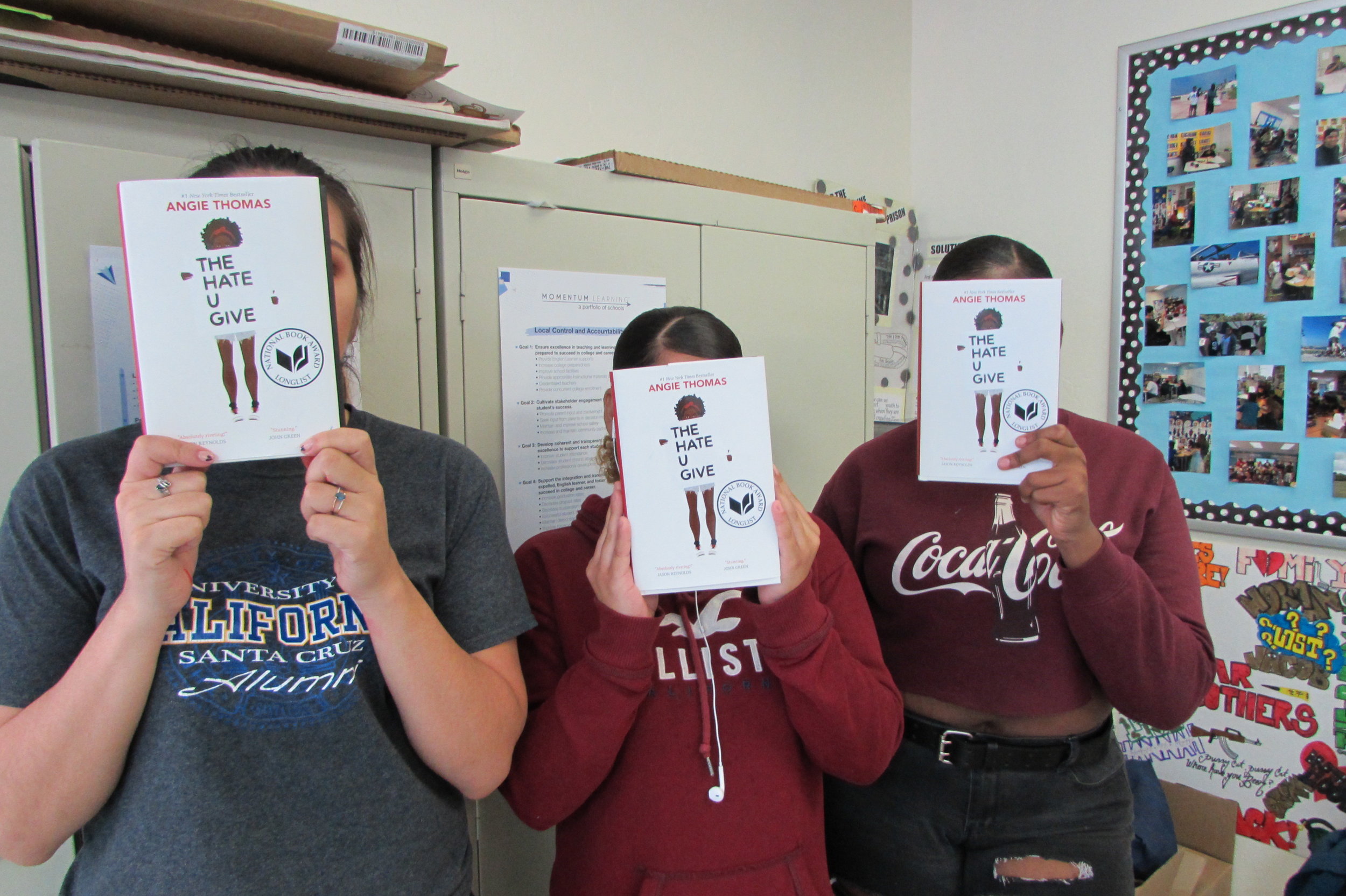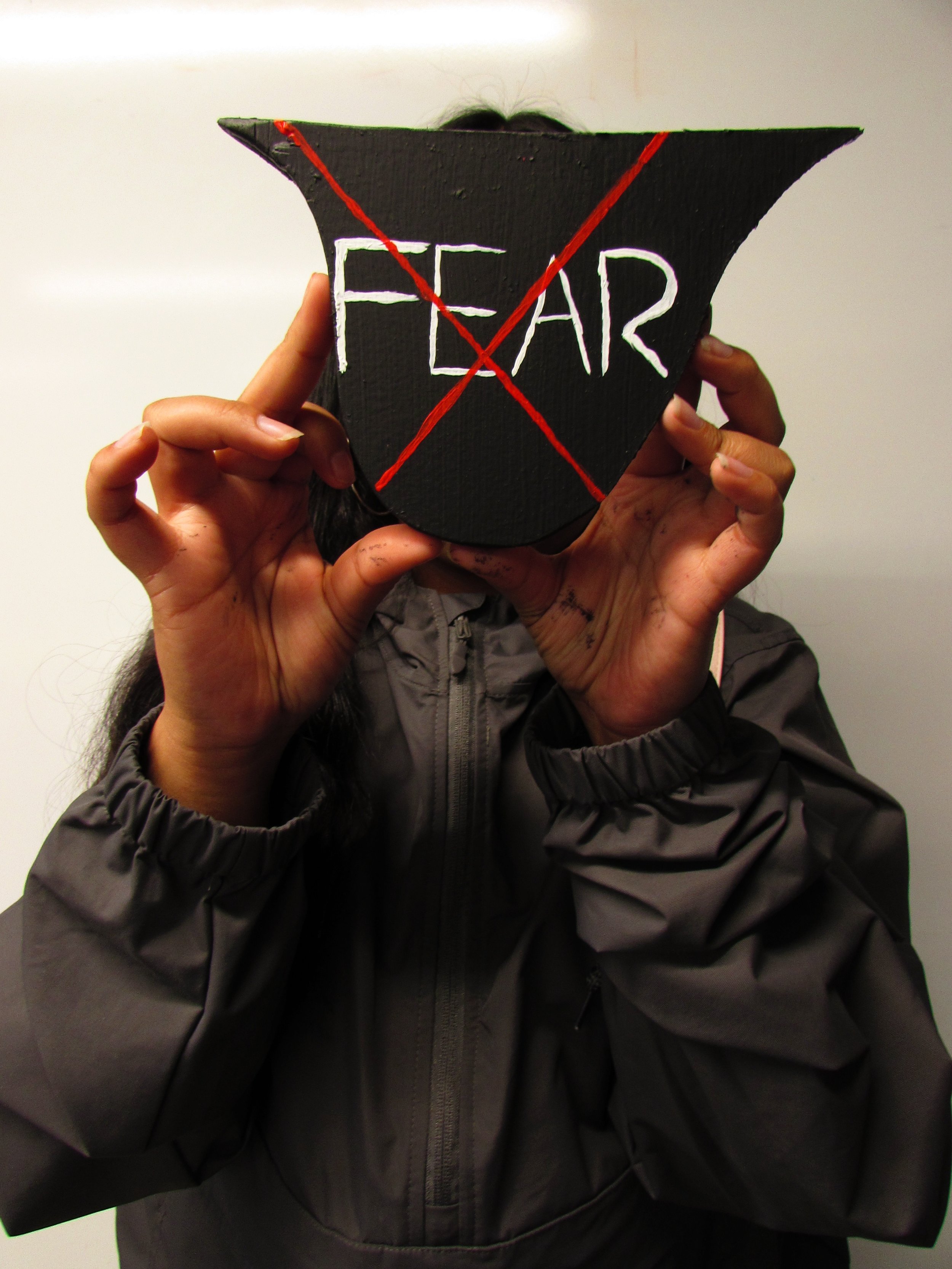By Jennifer Van Pelt
Words Alive’s Adolescent Book Group has wrapped up for the school year, so we would like to take a deeper look at what the program entailed, our successes, and what the participating students had to say about it!
An image of one of our Words Alive Westreich Scholarship students facilitating a book discussion at La Mesa Community School.
What is the Adolescent Book Group?
In 2018, our Adolescent Book Group (ABG) worked in 19 different classrooms that are within the Juvenile Court and Community School System. Across all classes, our participants read 41 books over the course of the school year.
Our ABG Program works to achieve three main goals: help students develop an enduring commitment to reading, become life-long learners, and become an advocate for themselves and their futures. In order to develop a commitment to reading, students are exposed to books with inspiring and life-changing themes that they are able to analyze and discuss further with their peers, teachers, and Words Alive volunteers. In 2018, 80.24% of students agreed that ABG has helped them develop a positive attitude toward books while 85.19% of students agreed that ABG has helped their ability to express themselves in group discussions. Luis, a 17 year old high school student said, “I thought this program was very helpful to me and made me want to read more. I really never liked reading until I got out to a program like this.” Developing a positive attitude towards reading opens up countless opportunities to continue learning by either teaching yourself or motivating yourself to pursue higher education.
Our participants are able to move towards the goal of becoming life-long learners because they are given the opportunity to learn and recognize their own ability to seek out information to solve problems, acquire critical thinking skills, and use the needed skills to successfully transition into a post-secondary education or a career after school. 8/8 teachers surveyed said ABG helped their students achieve the common core standards of determining and analyzing themes, analyzing the development of complex characters, propelling conversations by posing and responding to questions. In an environment that is very heavily influenced by a student’s performance in Common Core standards, this is an area important to address. A classroom teacher from one of our schools said, “The volunteers were well prepared and extremely helpful in moving the conversation forward, talking about their experiences and how they felt as they read the book. The behavior they modeled helped the students to discuss the topic from the perspective of their own experience.” Having additional positive role models in the classroom are also helpful for these teens as they near a turning point in their lives.
Our last main goal, to help students become advocates for themselves and their futures, is obtained by not only increasing the participant’s self-confidence in the classroom but also learning their voice as a reader, writer, and a speaker as they work towards personal, educational, and career goals. 80.25% of students agreed that ABG has helped their ability to express themselves through writing and 83.75% of students agreed that ABG has helped their ability to make connections between what they read, their life, and their world. Jamie, a 15 year old who participated in our ABG program said, “I liked the creative writing because I had more stories than what I thought I had and I got a chance to show them to people.” Taylor, an 18 year old High School student said, “I liked the discussions because I was able to speak what was on my mind and put ideas in other students’ minds.” Having the confidence to share your ideas through written and spoken methods are important in becoming empowered to achieve your goals.
An image of one of our students from 37ECB working on a black out poem. The image features a page of a book and the student's hand.
Across all 11 schools we work with, we have achieved top results. As we look for further ways to improve our program, we will continue to follow up with our student participants, teachers, and volunteers for productive feedback. If you are interested in becoming a volunteer yourself or would like to find out more information about attending our Author’s Luncheon & Fundraiser to support programs such as our Adolescent Book Group, head to our main page here!




